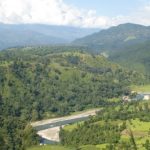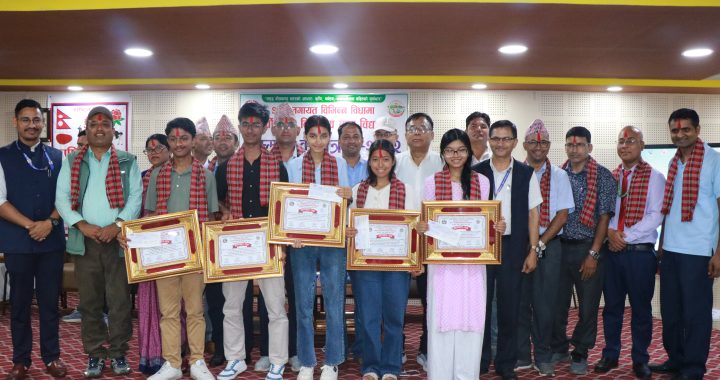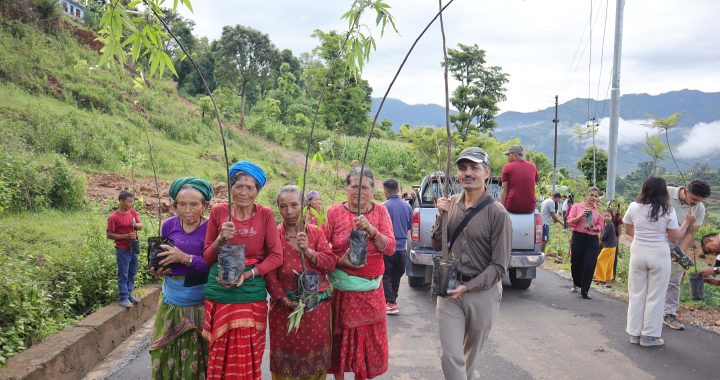
Rashila Adhikari
Traditionally, Nepalese culture cherishes the deep bond between parents and children, with generations living together under one roof. The idea of elderly care homes was once seen as a necessary support for those without families, but over time, it has gained a negative perception—an option of last resort for those who have been left behind by their children. So, the concept of old age homes has long been associated with feelings of abandonment despite having been opened for a good cause.
Therefore, a new and more compassionate approach can be of great help: daycare centers for the elderly. Unlike old age homes, these centers will offer flexibility, allowing seniors to visit whenever they like and even stay overnight if needed. This alternative provides elderly individuals with care and community without severing the close familial ties that are so integral to Nepalese life.
The Need for Daycare Centers for the Elderly in Nepal: A Step Towards Compassionate Care
If only Nepal had daycare centers dedicated to the elderly, life for many seniors would be so much more fulfilling and dignified. In a country where the elderly have long been cared for within the family, the shift towards nuclear families and increased migration has left many seniors in isolation. With the younger generation moving abroad for work or settling into busy urban lives, the elderly are often left with limited support during the day.
Imagine if there were daycare centers that catered specifically to the needs of these seniors—how transformative that would be! These centers could serve as lifelines, offering companionship, care, and a sense of purpose to our aging population. It would be a beautiful blend of tradition and modern care, ensuring that our elders are not just looked after but truly thrive in their golden years.
Why Nepal Needs a Day Care Centre for Elderly ?
A Safe and Caring Environment
If such centers existed, families would have peace of mind knowing that their parents were spending their days in a safe and nurturing environment. Seniors wouldn’t be left alone at home, where they are vulnerable to accidents or health emergencies. Instead, they would be in a place where medical professionals could keep a close watch on their health, ensuring that they take their medications on time, get regular check-ups, and are cared for if any issues arise.
Enriching Social and Cultural Lives
Imagine the joy that such centers could bring to seniors who currently face long hours of loneliness. These centers would be places of community, where elderly people could meet and socialize with others, share stories, and participate in activities they love. From bhajan and kirtan sessions that soothe the soul, to celebrations of festivals like Dashain and Tihar, these centers could become hubs of cultural and spiritual engagement.
They could relive their traditions, participate in cultural activities, and even pass down their wisdom and stories to younger generations. It would be a place where the elderly are not just living out their days but celebrating life in the company of friends and like-minded people.
A Focus on Health and Well-Being
Imagine if these centers offered not just care, but opportunities for seniors to stay active and engaged. There could be gentle yoga sessions tailored for the elderly, encouraging movement and flexibility, or gardening activities that allow them to reconnect with nature and enjoy the therapeutic benefits of working with the soil. Physical and mental well-being would go hand in hand, with counseling services and therapy available to support seniors as they navigate the emotional challenges that aging can bring.
Opportunities for Learning and Creativity
Elderly people in Nepal could continue learning and growing while taking up new hobbies like painting, knitting, or pottery. They could join language classes to communicate with their grandchildren abroad or participate in book clubs and storytelling sessions. This wouldn’t just keep their minds sharp—it would give them a sense of accomplishment and joy.
Imagine a center where seniors are creating art, crafting, and even sharing their skills with others. A place where they could teach younger generations traditional Nepali crafts or tell stories of the past, preserving history through their lived experiences. Such a center would be more than just a daycare—it would be a living repository of culture and creativity.
Bridging Generations and Technology
In the daycare centers, they could also bridge the gap between generations. Local schools could collaborate with the centers to create intergenerational programs, where students and seniors come together to share knowledge, stories, and skills. It could be a place where the elderly teach children traditional cooking, or where they work together on community projects.
Moreover, imagine if technology was embraced at these centers—seniors could learn how to use smartphones and social media, keeping them connected with family members abroad. They could even explore virtual travel, visiting places they’ve always dreamed of through immersive technology.
Unique and Enriching Offerings: Beyond Care, Creating Joy
To truly stand out, a senior daycare center must go beyond the basics and offer services that inspire, entertain, and engage the elderly in meaningful ways.
Physical Wellness Programs:
Senior-Friendly Yoga: Gentle exercise that promotes balance and mental clarity while minimizing stress on joints.
Dance Therapy: Light dancing to old classics, encouraging movement, joy, and an opportunity to socialize.
Walking Clubs: Group walks in nature or safe areas to keep them active and connected with the outdoors.
Creative Learning and Skill Development:
Pottery and Crafting Workshops: Hands-on activities that help keep their motor skills active and encourage creative expression.
Book Clubs and Storytelling Sessions: Allow seniors to share their life stories and memories, preserving them for future generations and creating a sense of belonging.
Language Learning Classes: Offering seniors the opportunity to learn new languages, especially those they always wanted to but never had the chance. And, for those having grandchildren speaking different language, it can bridge the gap somehow.
Cultural and Religious Celebrations:
Festival Celebrations: The center can celebrate festivals from various religions, such as Diwali, Eid, Christmas, and more, fostering an environment of inclusivity and mutual respect.
Cultural Days: Seniors can share their heritage, traditional foods, and stories, promoting cultural exchange and understanding. This can be an ongoing program where every week focuses on a different culture.
Intergenerational Programs:
Grandparent Days: Local schools can be invited to interact with the seniors, exchanging stories and wisdom, and participating in activities that bridge the generation gap.
Mentorship Programs: Seniors can offer their vast knowledge to younger generations, mentoring them in various skills like cooking, crafts, or even life lessons.
Recreational and Leisure Activities:
Cinematic Evenings: Regular screenings of classic movies and documentaries that bring back nostalgia and spark conversation.
Musical Sessions: Whether it’s a sing-along session of golden hits or playing instruments, music has a profound impact on mental well-being.
Board Games and Puzzles: Stimulate cognitive function while encouraging social interaction. Chess, carrom and crosswords can be part of daily activities.
Nature and Gardening Therapy:
A community garden where seniors can plant flowers, vegetables, and herbs. Gardening is therapeutic and offers a sense of achievement. Even urban centers can have rooftop or vertical gardens to provide this opportunity.
Digital Literacy Programs:
Use of smartphones: Teaching seniors how to use smartphones, video call apps, and social media allows them to stay connected with distant family members.
Tech Talks: Regular workshops where they can learn how to navigate online services, from banking to shopping, empowering them to stay self-sufficient.
Wellness and Mental Health Services:
Counseling and Support Groups: Offering emotional support and mental health services for those dealing with loneliness, grief, or other challenges.
Mindfulness and Meditation: Sessions designed to help seniors relax, reduce stress, and improve mental clarity.
Volunteering and Giving Back:
Seniors can participate in volunteer activities, such as knitting for special occasions, making care packages for the homeless, or even mentoring at-risk youth. This gives them a sense of purpose and fulfillment.
Technology-Enhanced Experiences:
Virtual Travel: Using VR headsets or immersive videos to let seniors “travel” to places they may never have visited. How great it feels taking them on virtual tours of the Taj Mahal, Vaisno Devi, or the Great Wall of China!
Online Social Clubs: Connecting seniors with peers from around the world through online platforms, allowing them to make new friends and share experiences.
Conclusion: A Vision for a Better Future
If Nepal had daycare centers for the elderly, our society would be so much richer and fulfilling for all of us. These centers would be sanctuaries where our elders are not just cared for, but where they thrive. It would allow us to honor our cultural values of respect and care for the elderly, while also adapting to the modern challenges of urbanization and migration.
In a world where such centers exist, the elderly would no longer be forgotten or left behind. They would be celebrated, cherished, and given the opportunity to live their later years in joy, surrounded by care and community. If only we had these centers, the lives of so many elderly people—and their families—would be so much brighter. It’s a vision for the future that Nepal should embrace, for the well-being of all.





















